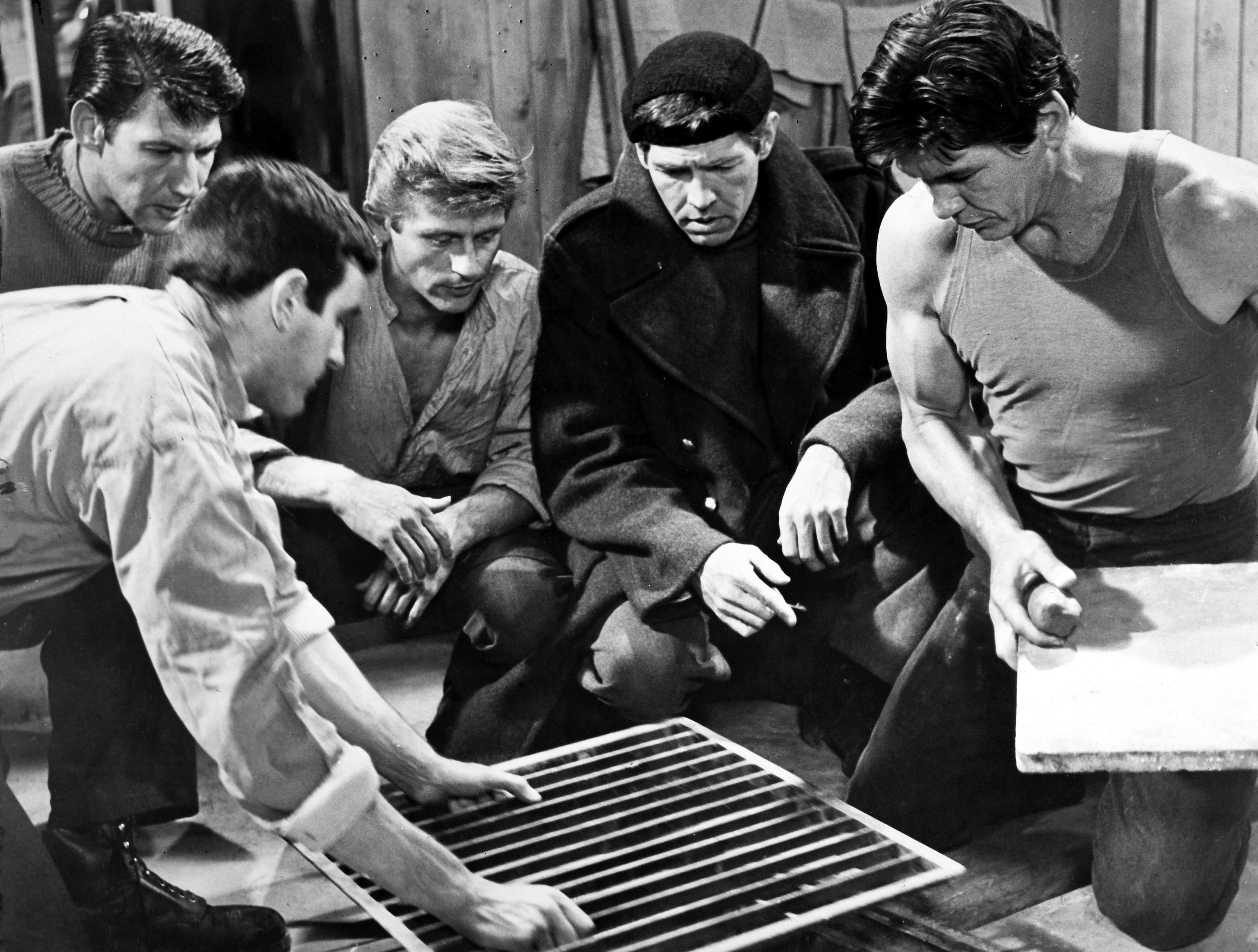The harrowing true story of how the Gestapo murdered the hero of the Great Escape
His escape was immortalised in one of the most famous scenes in the film version of the breakout from Stalag Luft III, but only now – 80 years later – can the full story of hero pilot and serial escaper Roger Bushell be told, writes Guy Walters, author of ‘The Real Great Escape’


It is one of the most iconic scenes in cinema, and a pivotal moment in the film The Great Escape. Richard Attenborough and Gordon Jackson play Roger Bartlett and Sandy MacDonald, two RAF officers disguised as French workers on the run after having tunnelled out from their prisoner of war camp.
As they wait to board a coach, they are questioned by a Gestapo officer, who engages them in French.
All goes well until MacDonald goes up the steps, when the officer casually wishes them, in English, “Good luck”. The escaper turns round, smiles, and replies, “Thank you”. There is a dreadful pause, and then all hell breaks loose.
Bartlett and MacDonald run away, but they are soon caught. Their eventual fate is a horrific one, as along with 48 other escapers, the men are shot dead on the direct orders of Adolf Hitler.
This weekend marks the 80th anniversary of the Great Escape, the celebrated mass breakout of prisoners from a camp called Stalag Luft III, located deep in a Silesian forest.
The escape was masterminded by the man played by Richard Attenborough, although his real name was Roger Bushell, a squadron leader who had been shot down early in the war, and had made several escape attempts.
Bushell was South African by birth, and came from a wealthy family. A barrister, daredevil skier, socialite, playboy, and linguist, Bushell was emphatically not the type of chap who would spend the war cooling his heels in a PoW camp.
In reality, Bushell did not escape with a Scotsman called MacDonald, but his companion was a Free French pilot called Bernard Scheidhauer. Because of the celebrated scene in the film, it is often supposed that when the two men were arrested, Scheidhauer was responsible for the fateful reply in English that sealed the fate of the two men.

However, thanks to an examination of the British interrogation records of various Gestapo and German police officers, it is finally possible to tell the true story of just how Roger Bushell was caught – and how he was killed.
By noon on Sunday 26 March 1944, some 48 hours after the breakout, Bushell and Scheidhauer were boarding a train that would take them 80 miles west to Saarbrucken on the French border.
Since they had left the tunnel, the two men had travelled around 500 miles, and hoped to be in France by the middle of that afternoon and shortly to contact the Resistance.
They had made good progress, but their luck soon began to dwindle. A policeman came on board and checked their papers, and declared that he was not satisfied. After arriving at Saarbrucken at around 2.30pm, the officer removed the men from the train and took them to see Fritz Bender, a policeman employed at the railway station to check passes and identity papers.

Bender examined their papers and found they were not in order. Although the officers claimed to be French workers from Breslau on their way to France on holiday, Bender noticed that their papers did not bear a Labour Exchange stamp. Bender therefore arrested them, and took them to the local police headquarters.
Crucially, according to a Gestapo employee called Gustav Pitz, another reason why Bender arrested the two men was because one of them said “yes” in English in response to one of Bender’s questions, rather than saying “oui”.
As Scheidhauer was French, and Bushell’s first language was English, it seems likely that if this slip did take place, then it was made by Bushell himself. Despite his linguistic ability, doubtless stress and exhaustion must have got the better of him.
The two men were held by the police until the early hours of Wednesday 29 March, when they were ominously transferred to the hands of the Gestapo, in the form of officers Emil Schulz and Leopold Spann, and driver Walter Breithaupt.

The Gestapo men gestured to the prisoners that they should get in the car, and then proceeded to handcuff them. Bushell protested, telling Schulz in German that applying manacles was not “compatible with the honour of an officer”, but Schulz said that he had been ordered to do so.
Spann then informed Bushell and Scheidhauer that they were being taken to a PoW camp. The officers were placed in the back with Schulz sitting between them, while Spann sat in the front next to Breithaupt.
At this stage, Bushell and Scheidhauer would have been wondering why it required the Gestapo to transfer them to a PoW camp – a task that could easily have been undertaken by the Kripo. The early hour was also an ominous sign. Although it is impossible to substantiate, both Bushell and Scheidhauer – and especially Bushell – must have strongly suspected that they were being driven to their deaths.
His murder was of course no more tragic and horrific than the 49 other deaths that took place, but the barbaric indignity of being shot in the back was a sad demise for such a dynamic and brave figure
After driving for some half an hour, Schulz and Spann told Bushell and Scheidhauer that they could leave the car in order to relieve themselves. Bushell lifted up his handcuffs, and Schulz removed them from both prisoners, who shook the cramp free from their arms.
Spann then warned them that if they tried to escape, they would be shot, the threat of which was reinforced by the fact that both he and Schulz had drawn their pistols. Bushell and Scheidhauer walked five metres back from the car, and about two metres away from the road, and began to urinate.
Schulz and Spann then took up their positions, and almost simultaneously shot the two men in their backs. Scheidhauer was killed immediately and fell forward onto his face. Bushell, however, had fallen onto his right side, and as he lay, he turned onto his back and started to convulse. “I lay on the ground and shot him through the left temple,” Schulz recalled, “whereupon death took place immediately.”
So ended the life of Roger Bushell. His murder was of course no more tragic and horrific than the 49 other deaths that took place, but the crude and barbaric indignity of being shot in the back while urinating was a sad demise for such a dynamic and brave figure.

Those who had killed him, however, would meet their just deserts – Schulz would be hanged by the British in 1948, Spann would die in an air raid, and Breithaupt would receive a life sentence.
There are few, if any, good deaths in war. Bushell and his fellow victims were not rapists or looters who might have expected such a form of execution, but were simply young men who wanted to regain the same sense of freedom they had enjoyed behind their control columns.
So as we mark its 80th anniversary, we should remember that the Great Escape is not just a tale of bravery and inventiveness, but also a story of mass murder.






Join our commenting forum
Join thought-provoking conversations, follow other Independent readers and see their replies
Comments